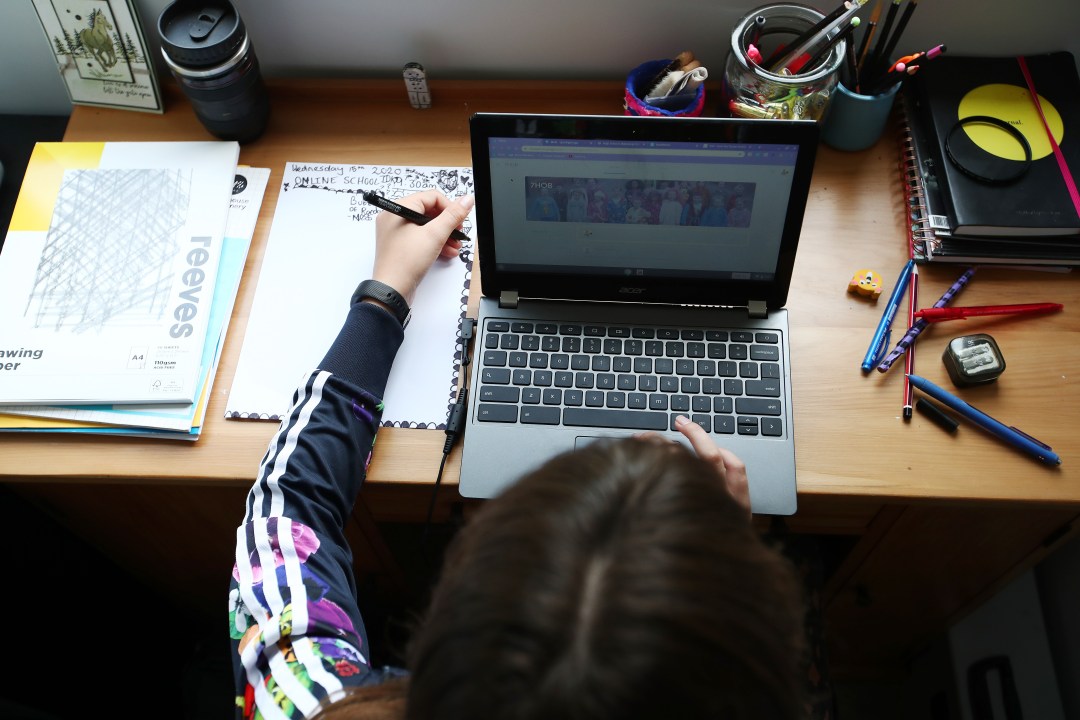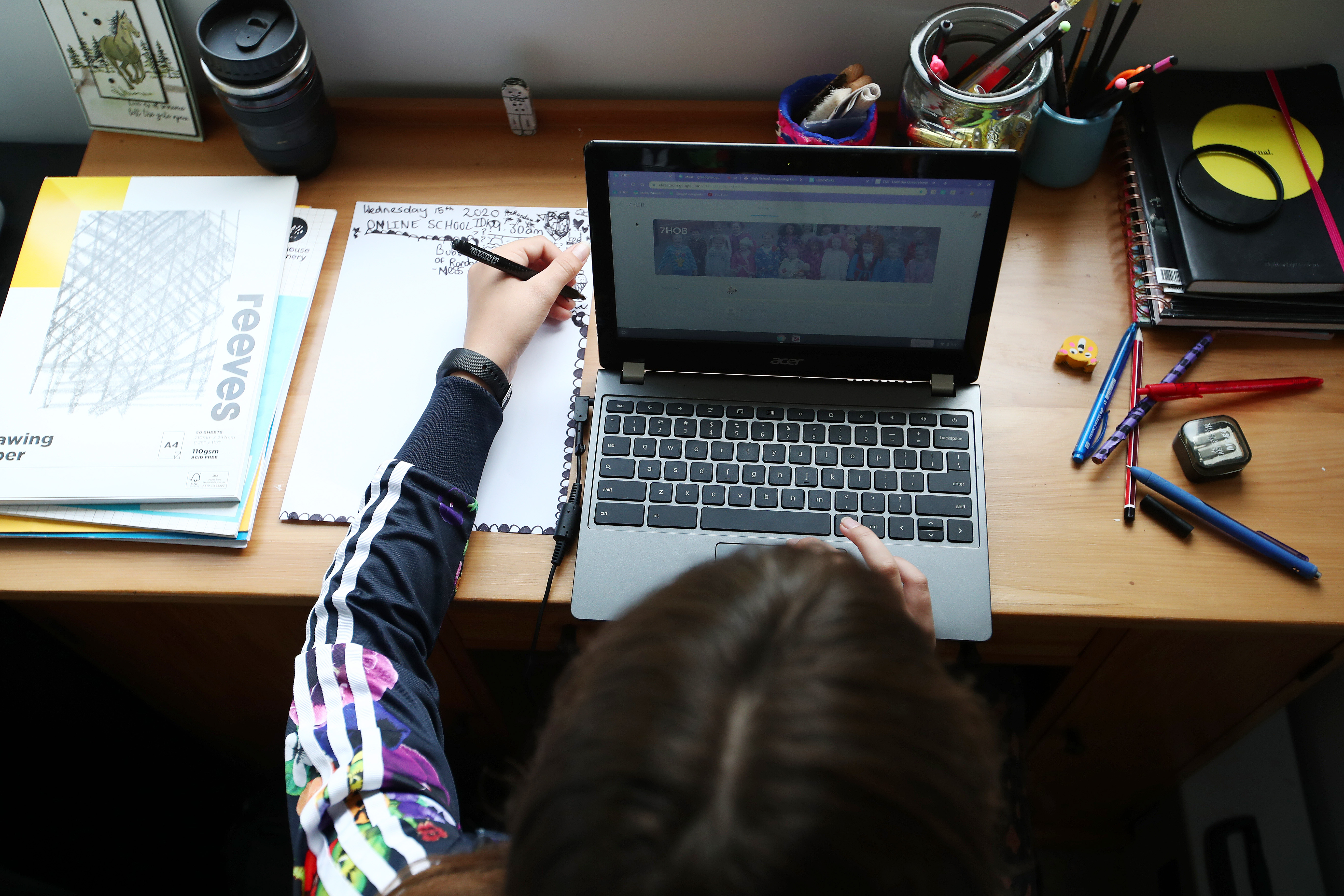It seems that a quarter of A level-students preparing to go to university haven’t been set any work by teachers. So… what does that tell you about the rest of them, the ones who aren’t the focus of teacher attention?
Perhaps all over the country, there is a frenzy of education going on. It just hasn’t happened very much in my vicinity. Except, from what I can gather, from people with children in private schools. I do know of teachers who’ve heroically gone out of their way to teach, set work and mark it (it takes more time marking online) but it’s by no means the norm.
How about the summer holidays lasting a month rather than six weeks, to take some account of the time lost?
In the case of my own children, 13 and 16, online teaching has been accurate in the case of the qualifier, not the substantive. There’s been an awful lot of stuff set online but not much marking and hardly any actual teaching. My son, who’s 16 has had one lesson for the whole of lockdown, in physics, which the teacher made clear was entirely voluntary on her part. Bully for her, but a ten-second interval for questions after each 15-minute session of speaking does not encourage pupil interaction. To be accurate, there was pupil interaction and I am sorry to say that it amounted to a couple of boys finding a way to mute the teacher for a while, which gives some idea of what their classroom must be like.
As for my daughter, again, there’s any amount of homework set online but so far as I can tell, no actual feedback. And from some of the homework, I’m in two minds about whether this is a good thing. She’s been set the ‘Lady of Shalott’ in English – hooray, you think, not Maya Angelou, for once – but the entire homework directs the pupil, not to the poem, not to the poet, not to the form, not to the sources, but to Victorian ideas about women (clue: confinement in the home) and how the ‘Lady of Shalott’ conforms to these Victorian stereotypes.
As for Google Classroom, it sounded brilliant, until you discover it’s actually a way for girls to interact with each other, giggling hysterically. Homeschooling? Don’t even ask.
Anyway, it would seem that the very earliest pupils can hope to get back to school is 1 June; the rest, I suppose, will follow a couple of weeks after that. Given that in state schools, the summer holidays are due to start in mid-July, this gives children a month or less of term for those who do go back.
So, here’s a modest proposal that Gavin Williamson might like to raise with the teaching unions. How about the school term going on for an extra fortnight, viz, until the beginning of August? In other words, how about the summer holidays lasting a month rather than six weeks, to take some account of the time lost? Teachers have longer holidays than almost any other group and stoutly maintain that they earn it. I’m not sure that this time, after two months off real teaching, that’s actually true.








Comments